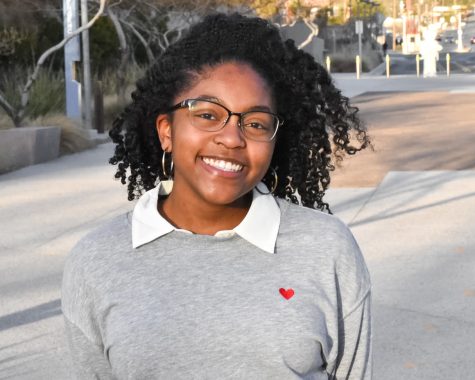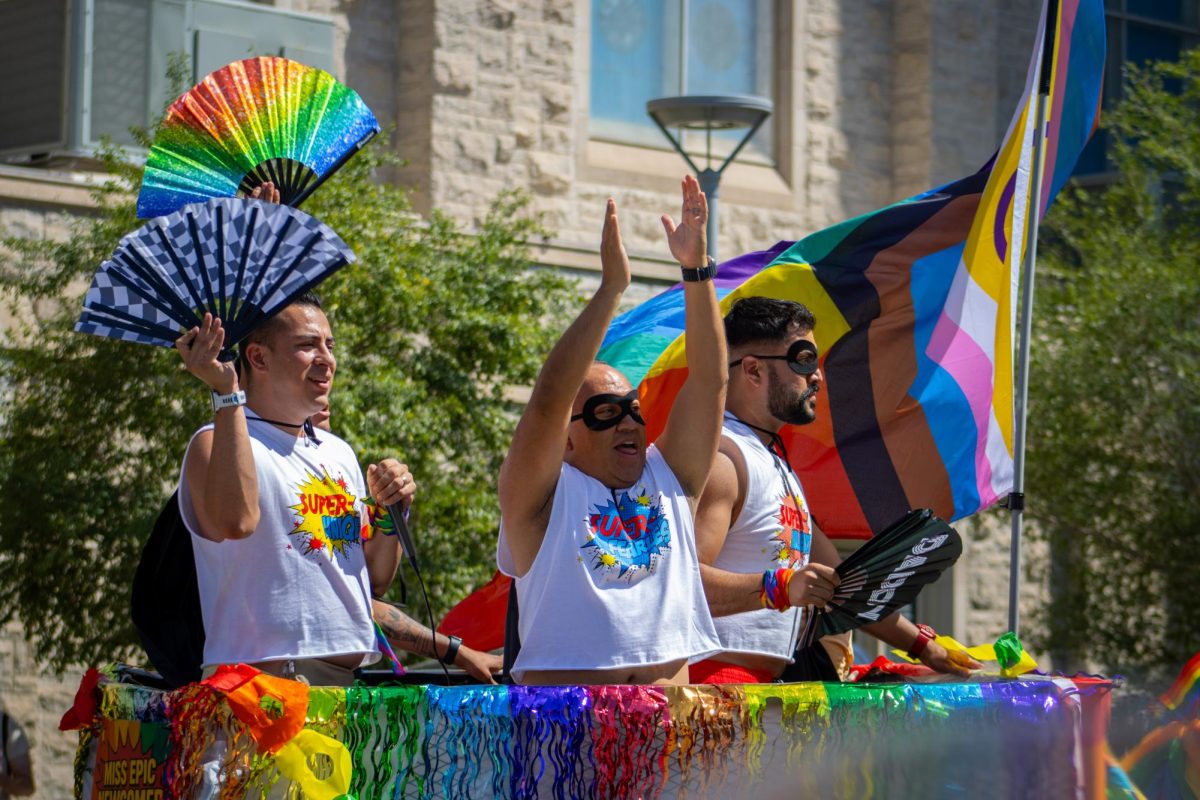Editor’s note: The story was updated Nov. 21 to correct Alberto Esquinca’s employment status.
In March 2017, UTEP’s College of Education received a hate letter.
The letter, written from the point of view of an anonymous student, targeted three faculty members: Maria Teresa de la Piedra, Char Ullman and Alberto Esquinca. It expressed the alleged thoughts of some doctoral students who felt that gay rights were being imposed on them.
“We have faculty who are making us accept their preferences,” the letter’s anonymous author wrote. “What is wrong with the college of education in putting people with this agenda in positions of power to intimidate by forcing us to talk and listen to their personal stories about this in every opportunity?”
The letter was sent out to the entire administration and the head of the Education Department.
“In the beginning, I took it really rationally, I said, ‘I’m not going to give power to this letter. I don’t care about this,’” de la Piedra said. “After a couple of days, it sunk in and it was really hurtful for me.”
This isn’t the first time that hostile mail has been sent to the College of Education. De la Piedra was its associate dean at the moment and knew about the other letters.
This one, however, was different because it targeted LGBTQ staff.
“The dean gave it to me, we talked and she cried with me, so I felt the support of the dean and I felt the support of the chair of the department,” de la Piedra said. “We didn’t receive any response from any other of the offices of the university, so that was really discouraging.”
The department waited months for a formal response to be written, but it never came. The Prospector reached out to another recipient of the letter who did not respond.
A similar situation happened at Spelman College and the president handled it with an open letter to the perpetrator.
“I would’ve liked for the university to take a stand and say, ‘We’re not going to permit any hate mail, even if it is anonymous. We support our faculty,’” de la Piedra said. “Those two sentences for me; that would’ve been it.”
Instead, the head of the Education Department held a faculty sensitivity training at the time. The event was sparsely attended with about 15 of the 40 members showing up.
The letter was never printed or written about for fear of giving it publicity, but it was read out loud at the training. The Prospector received a copy of the letter, was asked not to publish it for the same reasons, but was given permission to print an excerpt of it.
“Even though it’s not violent itself, it’s an act of violence. I think that’s a practice that we may find across the university sometimes,” de la Piedra said. “We need to talk about these issues; we need to address them because they’re real and they’re there.”
Jason Lilly, a doctoral student in teaching, learning and culture, experienced a similar situation in a course he took when he was in his master’s degree program at UTEP.
In an assignment, he mentioned that he was a part of the LGBTQ community. The next time he was in class, the professor made a homophobic comment and Lilly received a bad grade on the paper.
“It made me feel super small and, from that point on, I never felt comfortable in the class. I never felt like I could have a true voice,” Lilly said. “I ended up dropping the class completely.”
Lilly struggled to withdraw from the course, even though he had made a complaint.
He ended up taking the same course in the summer with another professor.
“When you’re talking about ed-leadership, if you’re going to be a principal, you’re going to be dealing with bullying. Those are going to be issues in the workplace,” Lilly said. “I think the university and the professors with the curriculum need to understand that, regardless of their own viewpoint, they need to address it as a soft skill. To me, it’s not about taking a stance, it’s about how you work with someone that has a different viewpoint than yourself.”
Protections for those in the LGBTQ community are limited depending on the state. Some states grant full protections while others grant them partially. In Texas, there are few cities that provide protections for LGBTQ members from employment discrimination.
El Paso is not one of them.
“I’m still amazed that there are still a whole lot of well-intentioned people who think that LGBTQ people have employment rights, federally,” Ullman said. “It’s totally state-by-state. That’s why I live in New Mexico, way better laws.”
Esquinca now works at San Diego State University in California.
“We’re losing out on talent. We lost Alberto’s talent, we lost his expertise, we lost his dedication, but we continue to lose,” said Katherine Mortimer, associate professor of bilingual and biliteracy education at UTEP and friend of the professors.
Following the situation, doctoral students created Queer(in)g Our Classrooms, an annual event looking to educate the community on LGBTQ-related problems. The College of Education has created programs to teach students how to better work with young members of the LGBTQ community in schools. UTEP’s Student Engagement and Learning Center (SELC) started the Rainbow Miners Initiative, which works toward building a culture of inclusion. Title IX also extends its protection to those who are part of the LGBTQ community.
“I take the position that the vulnerabilities of faculty are important to be resolved. They’re integrally connected to the vulnerabilities of students. Whatever makes us unsafe, makes the students in those same experiences unsafe,” Mortimer said. “If we really want to serve our students, which is the mission of the university, faculty need to be safe.”
Exodis Ward may be reached at [email protected]











